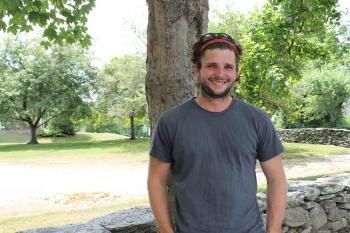Ian Parente

Sector Management in New England
This project documents fishery management related changes in individuals, households, and communities in New England.
Matthew Schult
Ian Parente, 30, is a commercial fisherman out of Sakonnet Point, RI. He is a second generation commercial fisherman who has fished his whole life and bought his own vessel out of high school; he also has 2 brothers that fish. Mr. Parente now fishes mostly for groundfish offshore on his commonpool boat; his other boat does not have a groundfish permit and mostly monkfishes. He feels that sector management is not a bad idea in theory, but that it has been poorly implemented, largely as a result of allocation issues. Sectors management favors the corporations rather than the small fishermen, who represent the heritage of fishing communities such as Sakonnet Point. As a result of sectors, Mr. Parente has experienced a loss of freedom in the fishing industry and experienced increased stress in himself and his family.
Please Note: The oral histories in this collection are protected by copyright and have been created for educational, research and personal use as described by the Fair Use Doctrine in the U.S. Copyright law. Please reach out Voices@noaa.gov to let us know how these interviews are being used in your research, project, exhibit, etc. The Voices staff can help provide other useful resources related to your inquiry.
The NOAA mission is to understand and predict changes in climate, weather, oceans, and coasts, to share that knowledge and information with others, and to conserve and manage coastal and marine ecosystems and resources. The Voices Oral History Archives offers public access to a wide range of accounts, including historical materials that are products of their particular times, and may contain offensive language or negative stereotypes.
Voices Oral History Archives does not verify the accuracy of materials submitted to us. The opinions expressed in the interviews are those of the interviewee only. The interviews here have been made available to the public only after the interviewer has confirmed that they have obtained consent.
